What is a POMERANIAN ?
The Pomeranian is an artificially bred cross between several types of Icelandic Spitz dogs.
The miniature size of the Pomeranian is attributed to Queen Victoria’s personal preferences. She owned a Pomeranian herself and desired it to be a small plush toy. Her preferences played a significant role in the hybridization of the breed.
The breed was officially recognized in 1900.
Breed Characteristics
Average Weight:
1.5 kg – 3.5 kg
Height:
15 – 35 cm
Lifespan:
12 – 14 years
Temperament:
Loyal, intelligent, and energetic
Types
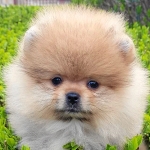
Standard Pom's
A member of the Spitz family, considered a descendant of the large German Spitz.
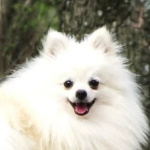
Fox Face Pom's
This is what a purebred Pomeranian should look like according to breed standards, featuring a more pointed muzzle and sharper ears.
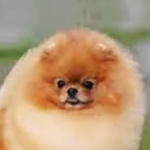
Teddy-Bear Pom's
One of the most sought-after variations, resembling a plush teddy bear. However, Teddy-Bear Pom's are not an official variation.
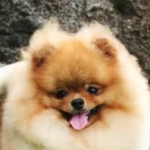
Baby Doll Pom's
Quickly gaining popularity with their round faces and expressive eyes. They are rare due to the relatively new breeding requirements. Like Teddy-Bear Pom's, they do not meet the official breed standards for dog shows.
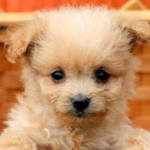
Pomeranian Crossbreeds
- Pomchi: Pomeranian + Chihuahua
- Pomapoo: Pomeranian + Poodle
- Buchanaronian: Pomeranian + Bichon Frise
- Pomapoo: Pomeranian + Poodle
- Buchanaronian: Pomeranian + Bichon Frise
Personality
Pomeranians are lively and energetic small dogs that are deeply devoted to their families. They love being carried and pampered, but it’s important not to overdo it—they need to learn independence. These dogs are observant but tend to bark a lot. While affectionate and delicate by nature, special care should be taken around small children due to their fragile bones, which are prone to fractures.
Activity
Pomeranians do not require extensive exercise. A short walk or playtime in the yard is usually sufficient, though they enjoy long walks and can keep going before tiring out.
Nutrition
Puppies have a fast metabolism, meaning they burn calories quickly. Due to their small stomach size, they need to eat smaller portions more frequently. Foods for small breeds are specifically designed to provide the necessary nutrients, and their smaller muzzles require appropriately sized feeding bowls.
Coat Care
When young, Pomeranians require daily brushing to help them shed their puppy coat. Once this stage passes, brushing can be reduced to twice a week. Regularly check the undercoat for knots or matting. Avoid using overly fine combs, as they can damage the undercoat, causing split ends. Use a wide-tooth comb instead. The fur around their paws should be trimmed regularly.